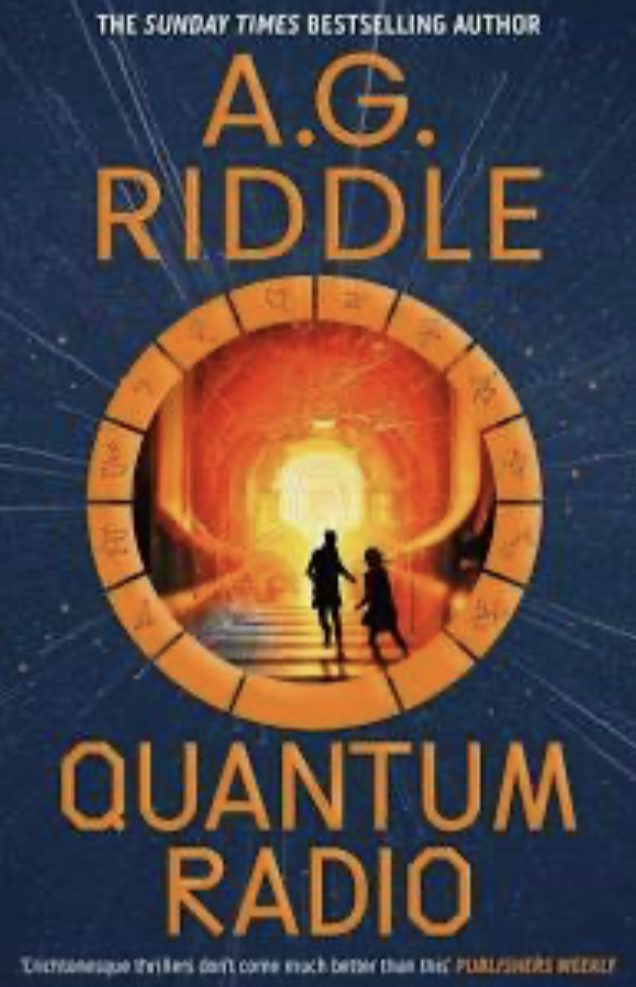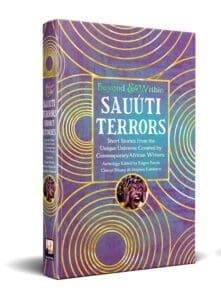
Synopsis
At CERN, a scientist has just made an incredible discovery – a breakthrough that may answer the deepest questions about human existence.
But what he’s found is far more dangerous than he ever imagined.
Dr. Tyson Klein is a quantum physicist who has dedicated his entire life to his research. At CERN, he analyses data generated by the Large Hadron Collider, the world’s biggest and most powerful particle accelerator. Now, Ty believes he’s found a pattern in its output. It looks like an organised data stream, being broadcast over what he calls a quantum radio.
Could it be a signal from another universe? A message sent from the future? Or something else entirely?
As Ty peels back the layers of his discovery, he learns that what he’s found isn’t what he thought it was. The encoded message is far more profound. It may alter our understanding of human existence and the universe.
But Ty is not the only one looking for it. Someone has been following his research for a long time. And they’ll do anything to prevent him from unravelling what is being broadcast by the quantum radio…
Because the first one to discover the truth may well control the future.
Review
If your favourite episodes of Star Trek are the ones that feature the mirror universe, Quantum Radio is the book for you. It’s an espionage thriller that takes place across the multiverse, aiming to pump the heart instead of bamboozle the brain. The vibe feels like The Man In The High Castle meets Tenet, except it moves sidewards through time instead of backwards, and it’s a lot more accessible.
Ty is the mastermind of the operation — a scientist who decodes a secret message hidden in the fabric of the universe. His mother was a geneticist who taught him the value of kindness. He’s likeable — intelligent without being superior. As far as geniuses go, he’s a very down to Earth one, more interested in unpacking the emotional baggage that comes from reconnecting with his estranged father than he is in formulas and technobabble.
And that’s the first thing that struck me about the book — the ease in which the technical aspects are absorbed into the narrative. There’s a lot of real science in here. Matter-particle collision, DNA sequencing, genetic evolution, and multiverse theory. And yet, at no point does it become difficult to understand, or even begin approaching the realm of textbookish. And it’s not just science for science’s sake either. The whole thing feels so easy to read, and that takes a real skill.
In fact, the focus of the book is so geared towards relationships, that it’s easy to forget just how much science is packed into it. If there’s a complicated web that’s woven through these pages, it’s not due to the plot, but the drama between the characters.
The whole thing starts with a bang. Literally. And the fallout brings Ty’s Dad back into his life, as well as his first love. Part of the fun of the first half of the book is in figuring out the secrets that have shaped these relationships. It peels back the layers to these characters so that by the time Ty steps into a mirror world, you feel like you know him. And that’s important, because it means the payoff in the second half of the book resonates that little bit deeper.
The same goes for the other three main characters who team up with Ty. There’s a frighteningly efficient assassin with a heart of gold, a junkie popstar, and a psychologist who just so happens to be Ty’s ex-girlfriend. By the time this team arrives through the looking glass, you know enough about them so that when their reflections are seen in the mirror of the multiverse, you feel the disconnect and the tension of that dissonance along with them.
In terms of the espionage element, there’s of course an evil organisation that’s using the technology which Ty has discovered for their own nefarious agenda. And it’s up to Ty to bring them down before they end the concept of freedom, one world at a time. The evil lurking in the shadows is suitably dastardly and frightening, made all the more so by twisting history to make them instantly more grotesque.
When you open up the multiverse, the possibilities for storytelling become endless. Recently, successful multiverse stories have mined this potential, and have adopted an approach where bigger is better. Quantum Radio takes a different tack. The final part of the book hints at all the crazy potential that the doorway to infinity holds, but for the most part, this is a contained affair, and there’s a great deal of control and care taken to ensure that it doesn’t spiral too far beyond familiar boundaries. This is less Everything, Everwhere, All At Once, and more A Few Extremely Cool Things, In A Handful Of Places, All At Once. But it’s all the better for it. It keeps things grounded and relatable, and it works to show what a world without kindness would be. Because that’s what this story is all about — whether kindness has a place in the world anymore, and why we need it now more than ever.
Quantum Radio is a clever take on an alternate history without ever straying from the present. What it lacks in multiverse madness, it makes up for in heart and character. The drama is high, the conflict is gripping, and the mirror it holds to the world warrants a careful look. Whatever frequency this book is broadcasting on, Quantum Radio contains a transmission that’s definitely worth tuning in for.








Leave a Reply